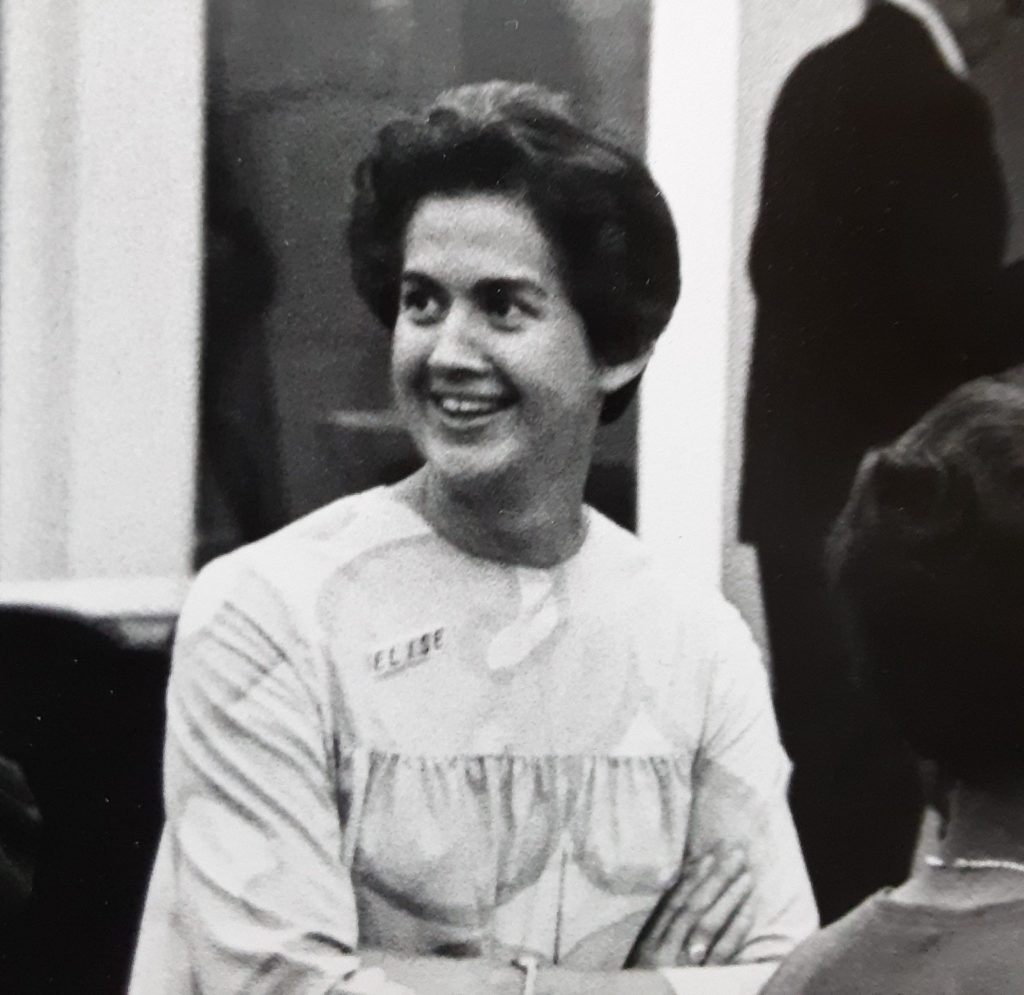In memory of Elise Andre, founder of SIT’s MATESOL program
March 22nd, 2019 | Faculty, SIT Graduate Institute

By Beatriz Fantini
When SIT Founder Jack Wallace decided to establish a Master of Arts program at the school in the Teaching of Languages, he sought a person with foreign language experience and familiarity with The Experiment philosophy. When Elise Andre was selected as the program’s first director, he struck gold: Elise was an Experimenter to Sweden, had an MA in teaching, and possessed a PhD in Foreign Language Education. In addition, she was an experienced French teacher.
When she arrived at the campus in 1967, she was tasked during her first year with designing the new program, together with Alvino Fantini, director of the Foreign Language Department, and Thomas Todd, director of the English Language Department, plus a team of experts in foreign language education.
The program was designed to be unique and distinctive from other teacher education programs at universities elsewhere. It had to be practical, innovative, and flexible, preparing educators in new approaches to language education. Students were placed in homestays with a Spanish- or French-speaking family and underwent a teaching practicum in the middle of the year, in contrast with programs that required a practicum at the end of classroom instruction. With a supervised internship between terms, MAT faculty could observe students in action, dialogue and interact with them in practical settings, and reflect on these experiences when students returned to campus for the last segment of the program.
Elise had a special way of giving feedback and interacting with the students that encouraged them to self-assess as part of the process.
In addition to directing the program during her second year at SIT, Elise also sought to obtain academic certification for the degree, which was granted just before the end of the program’s first year. At that time, Elise was one of few individuals at SIT with a PhD. Coming from academia, she had to introduce an experiential approach, characteristic of all Experiment programs, with the academic content. She and the program’s advisors were able to design a blended program while also introducing exciting new approaches to teaching languages. The organization’s experience with Peace Corps training provided a solid background to aid in all these efforts.
Working with Elise was a real learning experience. Already a teacher of Spanish for the MAT program, I expanded my learning at the same time, since the new approaches were a far cry from the earlier grammar-translation method. During the students’ internships, I accompanied Elise as she supervised the student teachers, and again I was learning in the process. Elise had a special way of giving feedback and interacting with the students that encouraged them to self-assess as part of the process. She used to say, “We have to tell them everything is good, while also pointing out areas that needed improvement.” She combined traditional practices with innovative strategies.
Elise completed her two-year assignment at SIT and left behind a well-designed MA program. After her departure, she continued her involvement as part of the program’s advisory board for several years, and returned in 1977 for The Experiment’s 45th anniversary. We still remember her well. And today, 50 years later, Elise’s legacy continues. Although the program has evolved and changed over the years, it still retains the original idea of preparing the best language teachers for today’s world.
Beatriz Fantini is associate professor emerita at SIT. She served as director of the Language and Culture Department at SIT Graduate Institute, and since 1966 worked in various capacities at SIT, including as a Spanish teacher, a teacher trainer, and a supervisor for both the Graduate Institute and Study Abroad. She also ran the summer language programs in Mexico.
